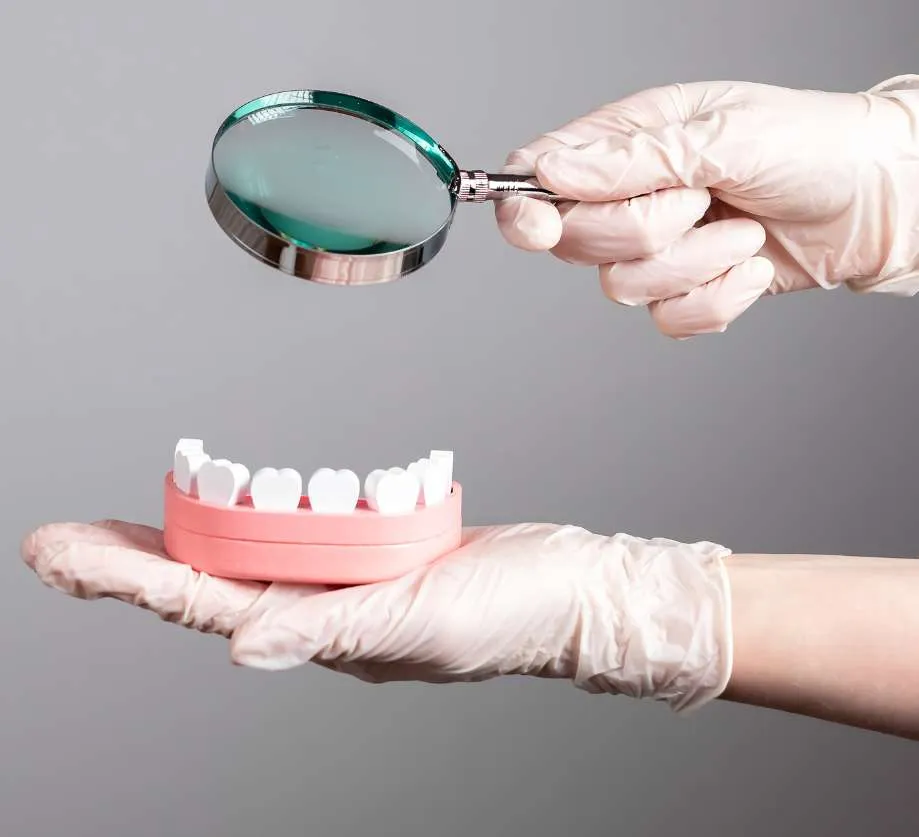Those with Periodontitis: Periodontitis is an advanced form of gum disease that requires prompt treatment to prevent further damage to the gums and surrounding structures. Patients with periodontitis may experience symptoms such as deep periodontal pockets, gum recession, loose teeth, and persistent bad breath. Periodontal treatment typically involves deep cleaning procedures such as scaling and root planing to remove plaque and tartar from below the gum line and promote gum healing.
Patients with Gum Recession: Gum recession occurs when the gum tissue pulls away from the teeth, exposing the roots and making the teeth appear longer. Causes of gum recession include gum disease, aggressive brushing, genetics, and anatomical factors. Patients with gum recession may require gum grafting procedures to restore lost gum tissue and protect the roots of the teeth from further damage.
Individuals with Deep Periodontal Pockets: Periodontal pockets are spaces that form between the teeth and gums as a result of gum disease. These pockets can trap food debris and bacteria, leading to further inflammation and bone loss. Patients with deep periodontal pockets may require more extensive periodontal treatment, including antibiotic therapy or surgical interventions to reduce pocket depth and promote gum healing.
Smokers: Smoking is a significant risk factor for gum disease and can impair the body’s ability to fight infection and heal tissues. Smokers may require more aggressive periodontal treatment and more frequent follow-up care to maintain gum health and prevent further damage.
Patients with Systemic Conditions: Certain systemic conditions, such as diabetes, cardiovascular disease, and autoimmune disorders, can impact gum health and increase the risk of gum disease. Patients with these conditions may require specialized periodontal treatment and close collaboration between their dental and medical providers to manage their oral health effectively.
Individuals with a Family History of Gum Disease: Genetics play a role in predisposing individuals to gum disease. Patients with a family history of gum disease may be at higher risk and may require more frequent periodontal evaluations and preventive interventions to maintain gum health.
Periodontal treatment encompasses a range of procedures aimed at treating gum disease and maintaining the health of the supporting structures of the teeth. It’s crucial for patients experiencing symptoms of gum disease or other issues affecting their gum health. Here’s an overview of periodontal treatment and who it’s for:
1. Scaling and Root Planing: This non-surgical procedure involves deep cleaning of the teeth and roots to remove plaque, tartar, and bacteria from below the gumline. Scaling removes the buildup of calculus (hardened plaque), while root planing smoothens the tooth roots to promote gum reattachment and reduce pocket depths. Scaling and root planing are typically recommended for patients with early to moderate gum disease (gingivitis or mild periodontitis).
2. Periodontal Maintenance: After initial treatment, patients with gum disease require regular periodontal maintenance appointments to prevent disease progression and maintain gum health. Periodontal maintenance involves professional cleanings, gum assessments, and monitoring of pocket depths to ensure that the gums remain healthy and free of inflammation.
3. Antibiotic Therapy: In some cases, antibiotic therapy may be prescribed to supplement periodontal treatment. Antibiotics can be delivered in various forms, including oral antibiotics, topical antibiotics applied directly to the gums, or as part of a scaling and root planing procedure. Antibiotics help eliminate bacteria causing gum disease and reduce inflammation.
4. Gum Grafting: Gum grafting procedures are performed to repair receding gums and cover exposed tooth roots. During the procedure, gum tissue from another area of the mouth or a synthetic graft material is transplanted to the receded areas, improving gum aesthetics, reducing tooth sensitivity, and protecting against further gum recession. Gum grafting is recommended for patients with significant gum recession or aesthetic concerns.
5. Pocket Reduction Surgery: For patients with advanced gum disease and deep periodontal pockets that do not respond to non-surgical treatments, pocket reduction surgery (also known as flap surgery) may be necessary. During the procedure, the gums are lifted back, and tartar is removed from deep pockets. The underlying bone may also be reshaped to reduce pocket depths and promote gum reattachment.
6. Bone Grafting: Severe gum disease can lead to bone loss around the teeth, compromising their stability and longevity. Bone grafting procedures involve adding bone graft material to the affected areas to stimulate bone regeneration and restore lost bone volume. Bone grafting may be performed in conjunction with other periodontal treatments or as a standalone procedure to support dental implants or stabilize teeth.
7. Maintenance of Systemic Health: Periodontal treatment is essential not only for oral health but also for overall systemic health. Gum disease has been linked to various systemic conditions, including diabetes, cardiovascular disease, and respiratory problems. By treating gum disease and maintaining gum health, patients can reduce their risk of developing these serious health issues.
At MYO Medical Center, our team of skilled periodontists and dental professionals is dedicated to providing personalized periodontal treatment to patients of all ages. We strive to address each patient’s unique needs and concerns, helping them achieve and maintain healthy gums and a beautiful smile. If you are experiencing symptoms of gum disease or have concerns about your gum health, schedule an appointment with us for a comprehensive periodontal evaluation and tailored treatment plan.


